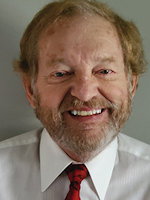I find economics fascinating, but despite a lifetime of independent study and having personally chosen all of my investments for decades, I readily admit that most professional brokers know more about the subject than I. On the flip side, those same brokers can’t truly comprehend the unique life of a dentist. Being the owner, primary producer, and manager responsible for every nuance of a practice creates stress and involves a large time commitment that renders many viable long-term fiscal strategies untenable. Dentists toil too long and hard to settle for just getting by, but our assets must be productively employed to maximize fiscal success. How can an already overburdened dentist best respond to this additional challenge?
Consistent success of any ilk resides on a foundation of understanding. To assure such lucidity over a 40-year career, I went to great lengths to keep things simple. For example, the most salient facts from my accountant’s multipage monthly profit and loss statement were always delivered to me distilled onto a 3” x 5” notecard. All of the information needed to perform any clinical procedure was displayed on a similarly modest-sized document. I believe the core concepts of investing must become that practical, streamlined, and easily understandable for dentists to attain financial independence.
But while understanding bonds, stocks, gold, international assets, and numerous other possibilities requires a lifetime of lucubration, it’s unnecessary to grasp every investment’s intricacies to succeed. Comprehending and actuating the principles that facilitate achieving financial freedom are more important, so let’s begin to break the verities of this complex subject down, step by simple step.
Step 1: Pay yourself first
Self-discipline is essential to attaining monetary independence. We couldn’t have finished our educations without possessing it; still, when dentists finally break free of higher education’s expensive shackles and begin to earn, some become capricious spenders, purchasing not because of need or reason, but by whimsy. Such wanton behavior creates uncertainty that leaves banking what’s left at month’s end as the only option. This approach is delusional, and because there’s seldom anything remaining, these dentists rarely save. This all-too-common malady can be overcome by implementing a systematic approach. As soon as you begin to receive consistent income, pay yourself first by writing the initial check of every month to savings—even if in the early years the deposit is little more than a mite. Nothing else works!
As the popular saying goes, “Money is a wonderful slave, but a terrible master.” These words are as truthful and portentous as any ever articulated. Currency can work against you when paying debt and interest, or on your behalf when income accrues. This watershed dichotomy between inflow (savings) and outgo (spending) determines if one spends a lifetime buoyed by a current of earnings or paddling upstream against a riptide of debt. The designation of this first monthly check has the power to determine one’s future. It’s that simple!
Step 2: Invest based on logic, not emotion
Have the courage to stick with decisions, even if and especially when others disagree. One must possess the fortitude not to purchase something because a neighbor, colleague, or sibling did, thus avoiding becoming a “big hat, no cattle” individual who has acquired the trappings of wealth but lacks substance. The whispered promises and outrageous lies of marketing have become an art form. Never in my lifetime have temptations to spend frivolously been so piquant, nor buyer’s remorse more poignant. This zeitgeist makes having the mettle to act with discernment—not emotion—ever more essential.
Step 3: Establish a financial team
Is your family a financial team, or are some members saving while others spend? Such a dichotomy can lead to frustration, conflict, and even anger on the savers’ behalf. Develop a clear, compelling vision, make sure all members comprehend and accept it, then continuously reinforce the dream.
When I was growing up, mentioning finances at home was taboo. But money was an open and oft-discussed topic among my family. By the time my four kids entered high school, each had read several books on finance, including The Millionaire Next Door by Thomas Stanley and William Danko, and several of the Rich Dad, Poor Dad series penned by Robert Kiyosaki. I’d recommend these approachable books to anyone desiring wealth. Sharing with family leads to in-depth discussions that create mutual understanding and the commitment essential for household success. One caution: the information proves efficacious only when the espoused philosophies are lived.
Allow two brief examples from my personal family history to buttress this point. I vividly recall overhearing my then-middle-school-aged daughter, Rachel, explaining to her lawyer brother why his car was a liability, not an asset. Simply put, assets make money; liabilities cost money. (This same analysis reveals a house to be a liability.) I also remember illustrating to then-10-year-old Megan, on the back of an envelope, how $1,000 invested in an IRA at her age yielding 10% per annum would grow to $512,000 by age 70. I knew she understood when she responded, “So if I start with $2,000, I’ll have a million?”
Step 4: Personalize your investments
Fourth is a rigorous self-assessment of your interest, ability, and habitual behavior. Do you find finance exciting and easily comprehensible? Do you tend to jump into a topic with white-hot excitement but soon switch to something new, or do you stay the course? Superior investments can be selected based on one’s determination and inclination to remain involved, or lack of the same. Bonds, CDs (certificates of deposit), and MMFs (money market funds) require little attention, while individual stocks, mutual funds, and ETFs (exchange traded funds) demand sustained scrutiny. This isn’t a matter of one investment being better, but choosing ideal assets based on an accurate character assessment.
What’s the best way to remain engaged? Sources of financial information are virtually endless, but a dentist’s time is not. Daily reading of the Wall Street Journal will keep you involved, but it requires more commitment than most dentists, including myself, are willing or able to invest. Fortunately, the Wall Street Journal publishes a weekend edition called Barron’s, which I have pondered judiciously and enjoyably every Saturday for decades. Every issue discusses numerous possible investments, and the publication keeps me aware of worldwide economic circumstances in 90 minutes a week.
Step 5: Focus on what’s essential
While positive-performing financial resources are critical, nothing will return your dollars and hours like dentistry. Don’t waste time and money on second businesses (as many bored dentists tend to do) or on investigating speculative exotics as puts, calls, or hog-belly futures. Understand how blessed we are to be in a profession where licenses create a virtual monopoly. Instead of competing in an endeavor accessible to everyone or trying to make a quick fortune with some financial gimmick, concentrate on having fun while serving patients. Keep first things first! Nothing is more essential than excelling in your career.
Yes, asset performance is crucial, but without self-discipline, consistent reaffirmation of judicious decisions, development of a coherent family unit, evaluating your own interests and abilities, and remaining joyfully and bountifully focused on your profession, there will be minimal opportunity for success. While money can’t guarantee happiness, it is a form of stored energy that affords choice and makes achieving your ideal lifestyle more probable.
JOHN A. WILDE, DDS, practiced in Keokuk, Iowa, and is now blissfully retired. He’s written six dental books and had more than 200 articles published in a wide variety of journals. He may be reached at (309) 333-2865 or [email protected].







